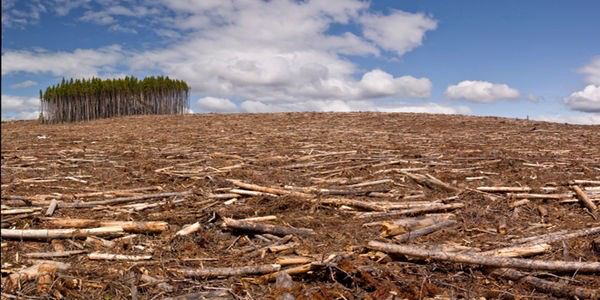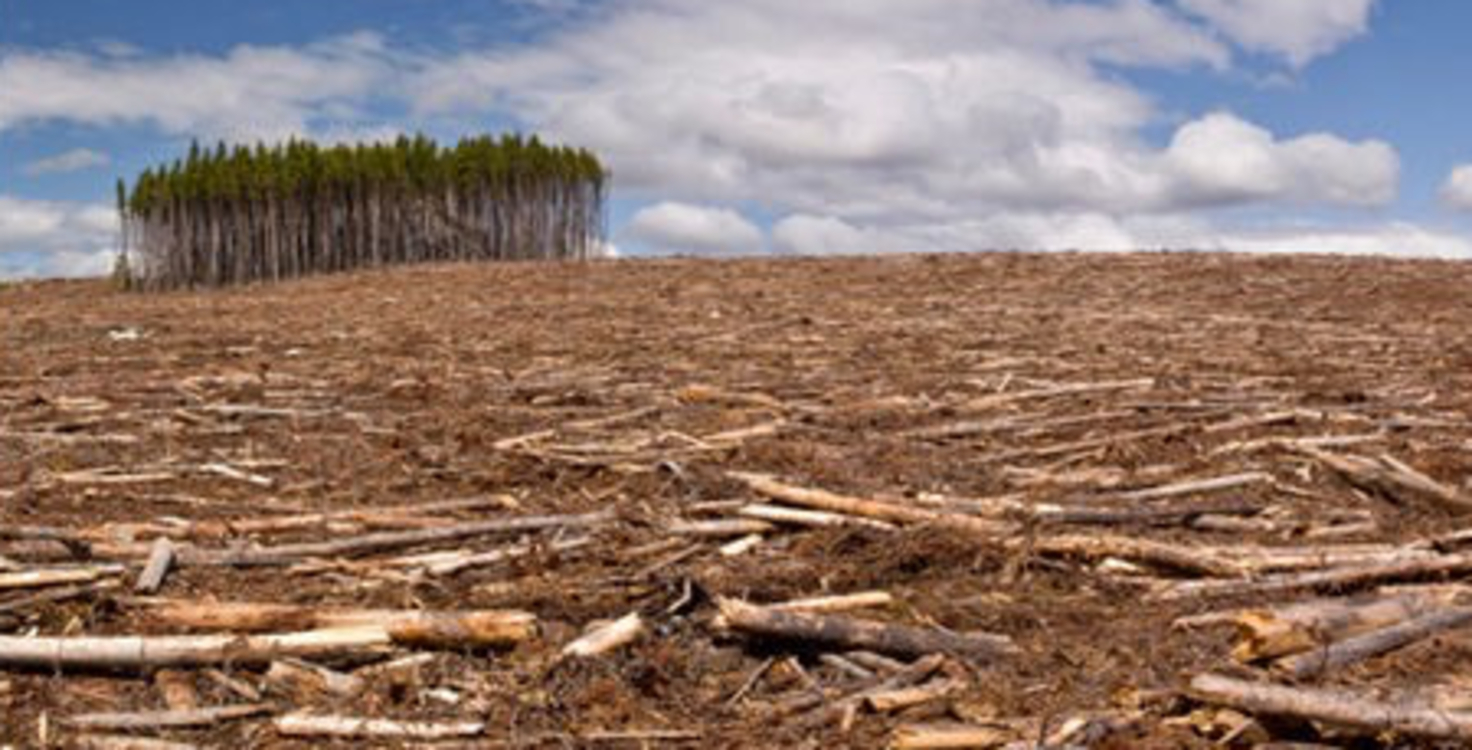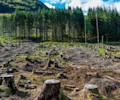The problem for many forests is that they can generate a great deal of short-term profit if the trees are cleared and the land reused to meet the global demand for commodities such as palm oil, cattle and soy. Palm oil alone is enormously significant to the global economy, and can be found as an ingredient in approximately half of all packaged goods in supermarkets globally. The soaring demand for palm oil has led to an area equivalent in size to 300 football fields of rainforest being cleared each hour for palm oil production.[1] The financial incentive to chop down the world’s forests is alarming given the vital role they play in carbon sequestration — the act of soaking up carbon dioxide — which is an essential component in climate change mitigation.
One case in point is the Cerrado region in Brazil. Cerrado is a vast wooded grassland the size of Mexico, located next to the Amazon. But around 50% of the Cerrado’s forests and native vegetation have been cleared in recent years to meetglobal agricultural demand — in particular the livestock industry’s demand for soy as animal feed.
This demand is only likely to grow given the increasing global demand for meat. Deforestation is also being driven by the escalating US-China trade war, with new tariffs likely to steer China away from US soy and towards imports from Brazil.

Hidden value
Many long-term investors have been urging the market to recognise that the intrinsic value of forests massively outweigh the short-term financial gains that come from clearing or repurposing land for crops destined for the food supply chain.
Firstly, investors recognise that the climate impact of mass deforestation is likely to translate into huge market-wide losses. When forests are cleared or burnt, carbon stored in the soil beneath is released into the atmosphere mainly as carbon dioxideand consequently tropical deforestation is now responsible for about 10–15% of greenhouse gas emissions, making it a significant contributor to climate change.[2] [3] As FAIRR’s founder Jeremy Coller recently put it, “What is the point of a pension fund, if beneficiaries face a world too hot to retire into.”
Secondly, forest cover impacts the rainfall patterns which the agriculture sector relies on. In the Cerrado, the forests and other native vegetation help regulate rainfall and we have seen a significant fall in productivity from the soy, maize and coffee industries in Brazil since 2000[4], demonstrating the risks associated with deforestation.
Thirdly, pressure from regulators and wider society to stop deforestation is affecting the value of commodity firms. For example, a recent analysis of Brazilian rural real estate firm BrasilAgro, which is active in the Cerrado region, suggests that 21%of the company’s equity value is at risk because over a quarter of its agricultural commodity sales go to two soy and corn customers who have both recently made zero-deforestation commitments.
A 2017 report by environmental non-profit CDP, found that as much as US$941 bn of turnover in publicly listed companies is dependent on commodities linked to deforestation.
Saving Cerrado
It’s encouraging to see that investors both big and small are accepting the call to action to protect Cerrado. Investors managing over $5.6 trillion in assets have now signed a statement of support, coordinated by the FAIRR Initiative calling for zero deforestation in the region, with the list featuring over 40 global investors, from institutional giants such as APG to small church congregations.
And as both mainstream and responsible investors push for zero deforestation in Cerrado, investors are also going one step further calling for action on disclosure of deforestation risks. Earlier this year, the FAIRR Initiative, an investor network backed by over $8 trillion of AUM, launched the Coller FAIRR Protein Producer Index. The Index provided an ESG risk assessment of 60 of the largest, listed global livestock and aquaculture companies, and found that 84% of the companies in the Index do not have targets or policies to address deforestation risk.
What can investors do?
A good first step for investors is to join the growing list that has thrown their support behind Cerrado by signing a new investor statement, coordinated by the FAIRR Initiative. By aligning with global retailers, manufacturers, livestock producers and feed companies, investors can make clear to cattle and soy firms the growing demand for zero-deforestation products.
Investors can also engage with global food retailers and producers – especially those featured in the Coller FAIRR Index – and call for deforestation to be put on Board agendas and for firms to disclose their exposure to – and management of – forest risk commodities. Investors may also opt to support a collaborative engagement facilitated by PRI and Ceres which aims to eliminate deforestation as a result of soft commodity production.
The agriculture sector has a major challenge on its plate. But by linking the protection of ecosystems like Cerrado to the protection of long-term value, investors can look after portfolio returns and the environment at the same time.
View the Cerrado Statement of Support here
References
[1] https://www.rainforest-rescue.org/topics/palm-oil/questions-and-answers#start
[2] https://www.climatecouncil.org.au/2014/10/13/deforestation/
[3] https://www.cdp.net/en/forests
[4] https://www.theguardian.com/environment/2013/sep/03/brazil-food-crops-climate-change
FAIRR insights are written by FAIRR team members and occasionally co-authored with guest contributors. The authors write in their individual capacity and do not necessarily represent the FAIRR view.










